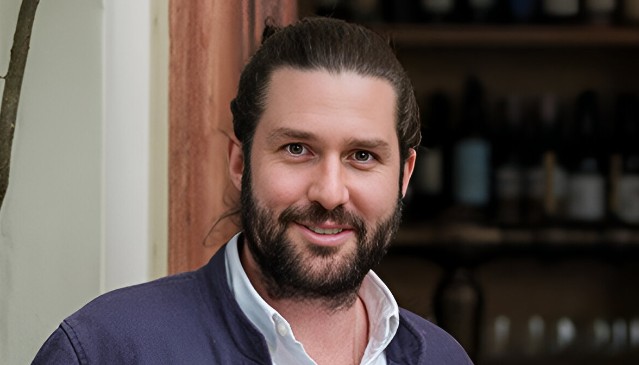Phil Winser: How One Restaurateur is Redefining Modern British Hospitality

Phil Winser is a British restaurateur and hospitality entrepreneur who has been making waves both in New York City and the United Kingdom. His work combines a passion for food, design, place-making and community. Through ventures such as The Fat Radish, Silkstone, Leadbelly and more recently Public House Group, Winser has crafted memorable dining experiences, reimagined pubs and shown how hospitality can simultaneously be high-quality and deeply embedded in its locale.
Early Years and Entry into Hospitality
A Modest Beginning
Phil Winser’s roots in the hospitality world were humble. His initial steps were not glamorous; they involved hands-on roles, late nights and mastering the basics. This early exposure instilled in him a deep respect for every part of the restaurant business, from front-of-house customer care to the hard graft in the kitchen. It also taught him resilience and the value of teamwork.
First Major Ventures: The Fat Radish and Silkstone
His first notable successes came in New York. The Fat Radish, opened in 2010, brought a fresh approach to seasonal produce, relaxed yet elegant dining and community-centred events. It was more than a place to eat; it was a gathering ground for creatives and food lovers.
Silkstone, another of his early projects, reflected similar values: local sourcing, design sensitivity and atmosphere. These venues helped Winser build a reputation for food quality, aesthetic appeal and authenticity. They marked the beginning of his international reputation as a hospitality innovator.
Design, Community and Place: Core Tenets of Winser’s Philosophy
Aesthetic and Atmosphere
One of Phil Winser’s distinguishing features is his attentiveness to design. Every venue under his direction tends to have a strong visual identity. Lighting, layout, furniture, garden or outdoor space are not afterthoughts; they are intrinsic to the experience. The sense of place matters. Patrons should feel not only well-fed but that they are entering somewhere thoughtfully crafted.
Produce-led Food
Food is more than fuel in Winser’s world; it is a narrative. Seasonal produce, ethically sourced ingredients and transparency in the kitchen are central. The menus under his stewardship are expressive, reflecting location, season and story. Whether it is a dish built around local vegetables or seafood, the emphasis is on freshness, quality and the connection between farm and table.
Community and Local Integration
Winser treats every project as part of a larger local fabric. He cares about how his venues fit into their neighbourhoods not just physically but socially. The public houses under Public House Group are intended to serve the local community: a place to meet, dine, celebrate or simply share time. Hospitality becomes as much about people and place as about plates and drinks.
Major Projects and Key Achievements
Public House Group
One of the most significant phases in his recent career, Public House Group is Winser’s vehicle for rethinking the British pub. This group has launched several successful venues including The Pelican in Notting Hill, The Hero in Maida Vale and The Bull in Charlbury.
These pubs blend high-quality food, excellent service, beautifully designed interiors and community-centred programming. They are not just eateries; they are social hubs with warmth, atmosphere and purpose.
Awards and Recognition
His work has attracted acclaim. The Bull in Charlbury earned recognition among the Top 50 Gastropubs. The strength of Winser’s design and hospitality innovation has been widely acknowledged in industry press and critiques.
Expanding the Vision
Winser has not stayed static. His ambitions include broader growth, experimenting with new venue formats and refining the pub-restaurant hybrid. He is attentive to what people want from hospitality now: comfort, trust, authenticity and creativity.
Challenges and How Winser Has Addressed Them
Navigating Regulatory and Economic Pressures
Operating hospitality businesses in London and across the UK comes with high rents, licensing laws, staffing shortages and rising costs of goods. Winser has had to negotiate these realities. His approach includes carefully curtailing risk, choosing locations wisely, keeping quality consistent and building strong teams.
Balancing Quality, Cost and Scalability
Maintaining excellent food and design while keeping price points accessible is no easy task. Winser navigates this by sourcing locally, cutting waste, using seasonal menus and designing workflows that empower staff. He is selective in scaling: rather than mass expansion, he favours controlled, quality growth.
Adapting to Changing Consumer Expectations
Post-pandemic, customers expect more: cleanliness, outdoor spaces, flexibility, digital booking and varied menus that cater to different dietary needs. Winser’s venues tend to offer seasonal menus, thoughtful wine or beverage lists and interiors that feel safe yet inviting. His awareness of trends without being slavishly trendy has helped maintain relevance.
Philosophy: What Makes Phil Winser Different
Holistic Hospitality
For Winser, hospitality is not just food plus decor; it is an integrated experience. Staff training, kitchen culture, service flow, music, lighting and comfort are all parts of a whole. Guests should leave feeling cared for: their palate satisfied, their senses pleased and their emotional expectations met.
Sustainability and Responsibility
Increasingly, the hospitality sector is assessed not just by profit margins but by environmental and social responsibility. Winser’s practice of sourcing from local producers, using seasonal ingredients, reducing waste and integrating with community priorities shows a consciousness about long-term impact.
Legacy over Hype
Unlike restaurateurs who chase rapid expansion, high-profile partnerships or one-off media attention, Winser seems more invested in legacy: creating places that endure, that age well and that matter to people. His work is often less about novelty and more about consistency, personality and connection.
Impact: How Phil Winser is Shaping British Hospitality
Elevating the Pub
The pub in Britain is iconic, but many have fallen short of the expectations of modern customers. Winser’s pubs are part of a renaissance: punches of ambition, quality, good food, great atmosphere and design, while remaining welcoming and unpretentious.
Bridging Restaurant Culture with Pub Culture
By combining restaurant-level food and service with the warmth, community vibe and approachability of pubs, Winser is helping to blur old lines. People no longer have to choose between a fancy restaurant and a local boozer; they can enjoy both under one roof.
Influencing Industry Standards
Rising standards in design, ingredient sourcing, staff training and guest experience have ripple effects. Other restaurateurs see what Winser’s venues do well and in a competitive sector it nudges everyone to do better. Suppliers, designers and local producers also benefit.
What Comes Next: Future Directions
Expansion and New Venues
Winser has already shown he can launch and sustain strong venues. Future plans suggest more public houses, possibly in previously underserved or unexpected areas, always with strong design and community focus.
Innovation in Format
Expect more experiments: mixed-use venues that integrate dining with retail, art or wellness; pop-ups; developing hospitality in unconventional spaces; and possibly collaboration with other cultural sectors.
Deepening Sustainability
There is room for deeper environmental initiatives: more local sourcing, renewable energy, zero-waste kitchens and eliminating single-use plastics, particularly as consumers and regulation push ever more strongly in that direction.
Lessons from Phil Winser for Aspiring Restaurateurs
- Know your place and people: Always understand the locality, the community and what people want.
- Obsess over quality details: From lighting and furniture to the cut of meat, everything counts.
- Build a strong team: Your staff are the face of your vision; invest in them.
- Be financially prudent: Control costs and manage risk. Good margins come from efficiency, not compromise on standards.
- Think long-term reputation: Sustained excellence builds more value than short-lived hype.
Conclusion
Phil Winser stands out as a restaurateur who does not chase flash but substance. His work is built on foundational values: design, community, provenance, sustainability and a holistic view of hospitality. In doing this, he is helping to define what modern British hospitality can and should be. For those who love food, place and people, his venues offer more than just a meal; they offer warmth, identity and memory.



